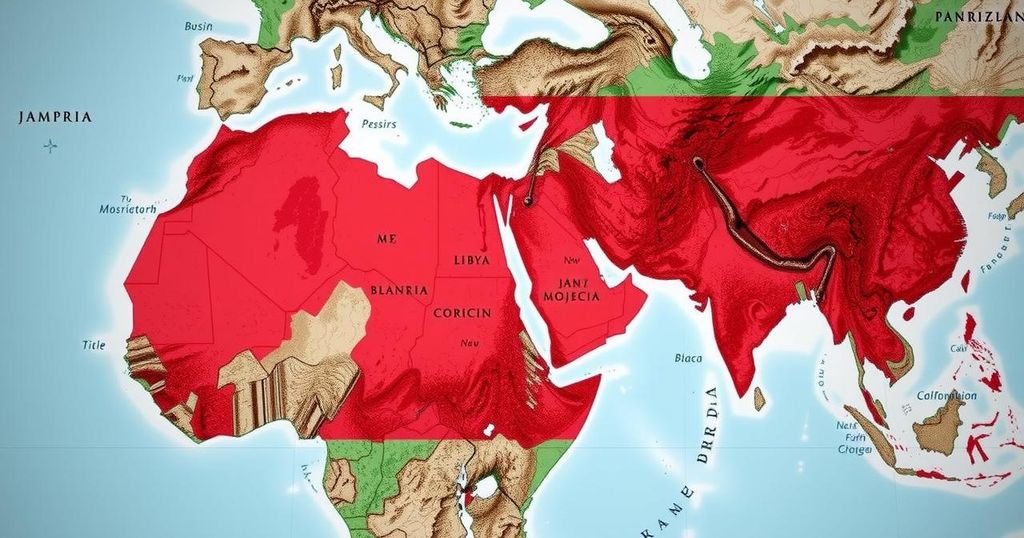Russia Shifts Focus to Libya in Response to Changing Dynamics in Syria

Russia is refocusing its strategic interests from Syria to Libya following the fall of Bashar al-Assad. The Kremlin is intensifying its military involvement in Libya, supporting Khalifa Haftar against the recognized government. This shift seeks to maintain Russian influence in Africa while confronting challenges from competing regional powers. Expert analysis highlights the complexity of operating within Libya’s fractured political landscape.
Recent developments in Syria, particularly the fall of former ally Bashar al-Assad, have nudged Russia to explore Libya as a new strategic foothold in Africa, where it has previously maintained operations. Russia’s military presence in Syria, which includes a port and air base, has become precarious under new leadership, prompting a shift of focus toward Libya, where it has been backing Khalifa Haftar against the UN-recognized Government of National Unity. Despite claims from Syria’s new leadership of a continued alliance with Russia, experts assert that Russia’s desire for strategic continuity in Africa is driving this pivot. Since the transition of power in Syria, Russian military resources have increasingly flowed into Libya, marking a significant escalation of involvement, particularly in the context of ongoing regional tensions. As Russia seeks to consolidate its influence, it faces challenges including the need for public visibility in Libya compared to the opacity it enjoyed in Syria, along with competing regional interests, particularly from Turkey and European nations.
The geopolitical landscape in North Africa and the Mediterranean is changing, particularly following the weakening of Russia’s position in Syria. The loss of a reliable ally in Assad compels Moscow to reassess its operational dynamics in the region, focusing on Libya as a potential new base for military and political influence. The strategic importance of Libya is amplified by its geopolitical context, with various foreign interests vying for leverage amid a fractured political environment. This scenario provides Russia an opportunity to disrupt Western influence while attempting to maintain a significant presence in Africa as part of its broader geopolitical strategy.
In conclusion, Russia’s strategic pivot from Syria to Libya highlights an ongoing need to maintain influence in Africa and counter Western interests. Despite this shift, Russia must navigate the complexities of a more transparent and contested landscape in Libya, differentiating its approach from the more secretive actions it could take in Syria. The integration of military resources and reliance on local proxies like Haftar represent both opportunities and risks, underscoring the evolving dynamics of power in the region.
Original Source: thedefensepost.com







